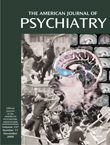Dr. Benedetti and Colleagues Reply
To the Editor: We thank Dr. Nobile and her colleagues for commenting on our data and raising issues for further research. The possibility that a different pattern of 5-HT activity may condition different responses to both pharmacological and chronobiological antidepressant treatments links with current research on 5-HT and the regulation of circadian rhythmicity (1) and on the dimension of cyclicity in mood disorders. Given the heterogeneity of mood disorders, the possibility of defining a kind of “serotonergic depression” (i.e., due to some kind of serotonergic malfunction and thus responding to serotonergic treatment) is of theoretical and clinical relevance.
A caveat is necessary, however. Given the interplay between neurotransmitter systems, clinical response to a treatment acting on one system does not imply a dysfunction of that system. In these respects, the data cited by Dr. Nobile et al. in depressed adolescents are the only findings available to support a 5-HT dysfunction in patients homozygotic for the long/long variant of the promoter of the 5-HT transporter. This new research area is still highly controversial; seasonal fluctuations in 5-HT blood levels have been described in subjects with the long/long variant (2), whereas seasonal affective disorder has shown a higher prevalence in subjects homozygotic for the short/short variant (3). A study of delusional depression showed different responses depending on genotype when patients were treated with fluvoxamine alone but not when fluvoxamine was combined with pindolol (4). These data support a role for self-inhibitory autoreceptors (and not only for the carrier) in determining response differences among genotypes and show that patients with the short/short variant can actually respond to combined therapies acting on 5-HT pathways. Finally, the short allele has been associated with higher anxiety levels in normal subjects and depressed patients (5), and anxious depression is known to show a less favorable response to treatment than melancholic depression. This suggests the presence of complex relationships among the 5-HT carrier genotype, treatment response, and psychopathology that are not limited to patients with the long/long genotype.
Notwithstanding the pioneering importance of every study in the field, additional research seems necessary before we can draw firm conclusions about the relationship between the 5-HT-transporter promoter genotype and the characteristics of mood disorders.
1. Morin LP: Serotonin and the regulation of mammalian circadian rhythmicity. Ann Med 1999; 31:12–33Crossref, Medline, Google Scholar
2. Hanna GL, Himle JA, Curtis GC, Koram DQ, Weele JV, Leventhal BL, Cook EH Jr: Serotonin transporter and seasonal variation in blood serotonin in families with obsessive-compulsive disorder. Neuropsychopharmacology 1998; 18:102–111Crossref, Medline, Google Scholar
3. Rosenthal NE, Mazzanti CM, Barnett RL, Hardin TA, Turner EH, Lam GK, Ozaki N, Goldman D: Role of serotonin transporter promoter repeat length polymorphism (5-HTTLPR) in seasonality and seasonal affective disorder. Mol Psychiatry 1998; 3:175–177Crossref, Medline, Google Scholar
4. Smeraldi E, Zanardi R, Benedetti F, Di Bella D, Perez J, Catalano M: Polymorphism within the promoter of the serotonin transporter gene and antidepressant efficacy of fluvoxamine. Mol Psychiatry 1998; 3:508–511Crossref, Medline, Google Scholar
5. Serretti A, Cusin C, Lattuada E, Di Bella D, Catalano M, Smeraldi E: Serotonin transporter gene (5-HTTLPR) is not associated with depressive symptomatology in mood disorders. Mol Psychiatry 1999; 3:280–283Crossref, Google Scholar



